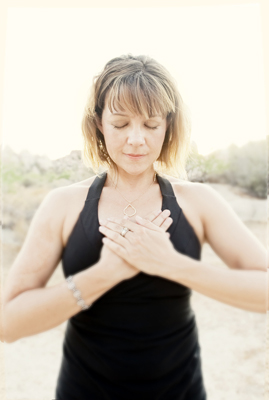Healing from Within

Therapy patients are more likely to have successful outcomes when they see therapy as a tool for self-healing. Good physicians will ask their patients about their habits of mind and body and guide them to heal themselves through better lifestyle choices. Still, many of us continue to look outside ourselves for healing. We don’t trust in our abilities to access the power or wisdom we need to cure what ails us. As Shakespeare wrote in All’s Well That Ends Well, “Our remedies oft in ourselves do lie/Which we ascribe to Heaven.”
Why do we resist the idea that we might have the capacity to heal ourselves? Why are we quick to look outside ourselves for someone to rescue us or fix us?
Some consider affirmations powerful because they change thoughts and sometimes, deeply held beliefs, making them more positive and productive. Saying affirmations may be a way to heal ourselves, but when they work, it’s because we are accessing healing energy in the form of emotions such as confidence, joy, and gratitude. As a clinical psychologist, Jungian analyst, and shamanic practitioner, I know there are many techniques for accessing energies that can help us reprogram our mindsets, emotional patterns, and even perhaps our cells. Research shows that emotional stress causes biological changes, and a sense of well-being boosts immunity and lowers levels of the stress hormone cortisol. But how can we work with energies that have powerful healing qualities?
Healers such as analysts, therapists, shamans, acupuncturists, and physicians don’t have magical abilities. What they have is skills for helping people to help themselves and change the stories of their lives.
Often, people who use Jungian or shamanic techniques for accessing the unconscious mind realize that the insights they’ve gained were ones the conscious mind may not have been aware of, yet they weren’t completely unaware of these insights either. When we’re uncomfortable with a truth about ourselves and our lives, we tend to push that knowledge out of the conscious mind, but it remains in the unconscious, where it can be accessed. The unconscious mind nudges us by bringing us messages in dreams and symbols that may come to us when we choose to stop thinking about how to solve our problems and instead sit quietly in a state of openness. The remedy that lies within may push us to make changes that are scary or uncomfortable. However, if we truly want to change our stories, free ourselves of chronic worry or discontent, and feel a sense of control over our lives, we have to be willing to face that discomfort and trust that we know more than we think we know. It’s deeply satisfying to me to guide a client into claiming what she knows already, and helping her to see that I’m merely an assistant in her healing process.
Where do these insights we find within ourselves originate? Maybe it’s our own, individual consciousness that plants the seeds, tends to the sprouts, and offers us a harvest of wisdom. Maybe individual consciousness is, as Carl Jung suggested, always connected to a collective unconsciousness filled with wisdom and insights as well as archetypal energies that can affect us in good ways and in not-so-good ways–energies we can work with in order to create better outcomes for ourselves and heal what’s causing us to suffer.
Whatever you believe, think about a time when you realized that someone else was telling you what you already knew deep down. Why is it that you’re reluctant to trust your own ability to go within and find the remedies you need?
You can learn more about transformation and how to change your story and your life by reading my books, including my latest, Go Within to Change Your Life: A Hidden Wisdom Workbook for Personal Transformation. They’re available at bookstores everywhere.
